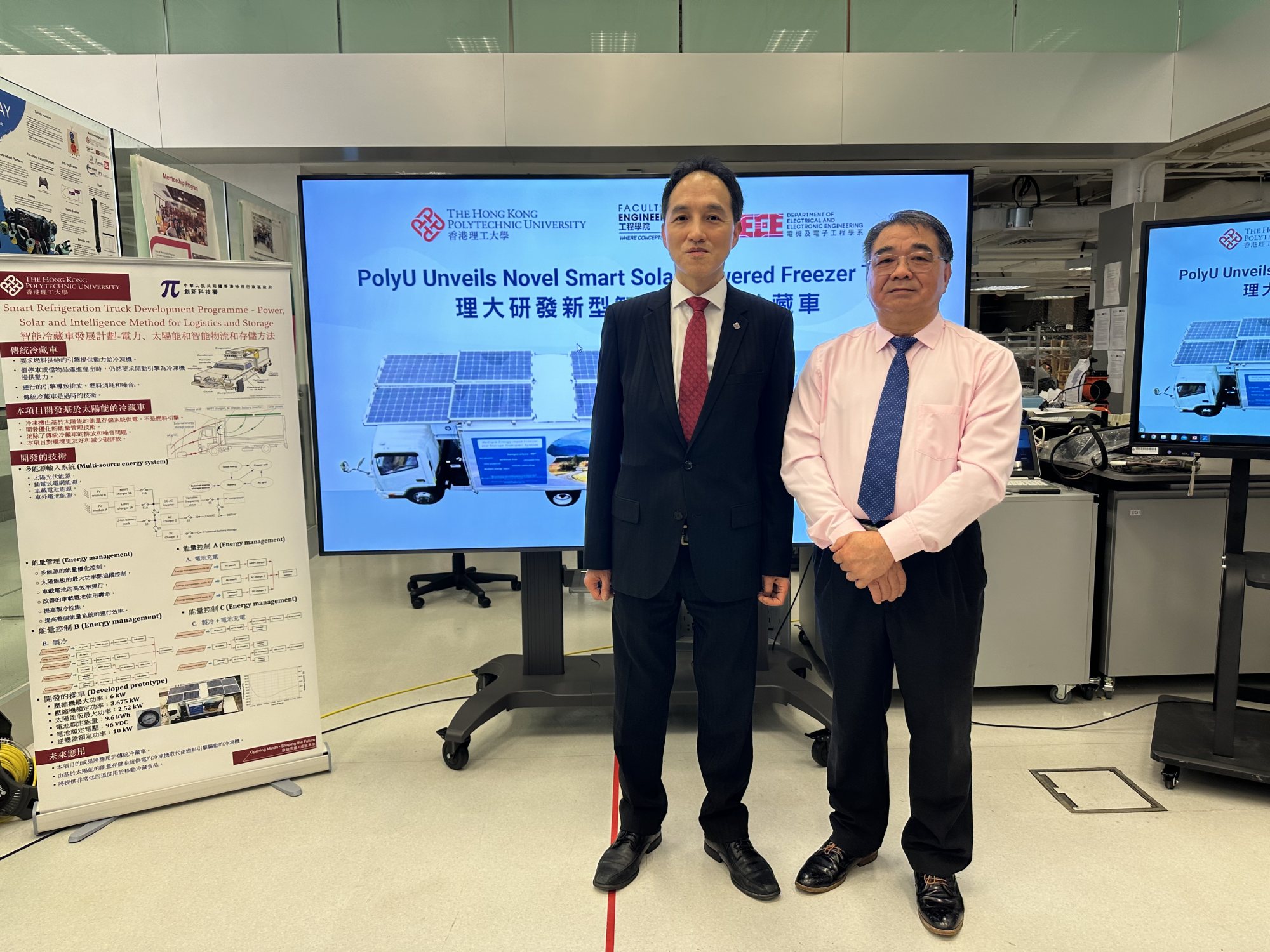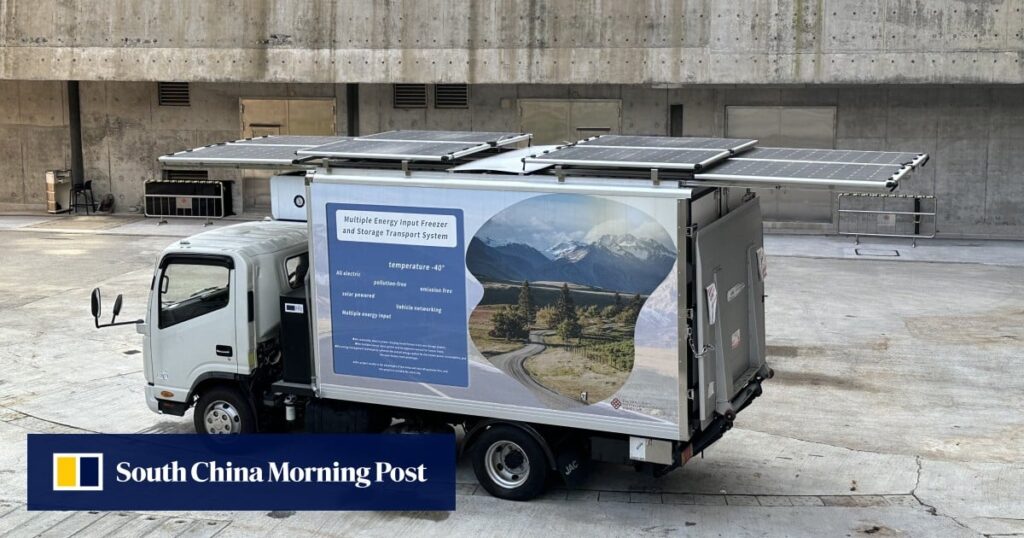The vehicles, which feature a solar-powered refrigeration system and power storage and sharing technology connected to the vehicles, will allow truck owners to avoid high fuel costs and could recoup their investment in just six months, said Eric Mak, CEO of Sunlight Ecotech, a sponsor of the project and supplier of the trucks' solar panels.
“We hope to start selling our first vehicles in about four months,” Mak said at the launch event. “We also plan to sell 1,000 units in Hong Kong within three years. We also plan to bring our solar-powered refrigerated trucks to the Australian market.”

The project aims to promote the transition from traditional fuel-powered freezer systems to smart, electrically-powered systems and enhance the wider adoption of solar energy. The project received more than HK$4.9 million in funding from the government's Innovation and Technology Fund in June last year, according to the fund's website.
Hong Kong Science Park-based Sunlight Ecotech, Australian company Advanced Sunlight and Hong Kong's Electrical and Mechanical Services Division are co-sponsors of the project, according to its website.
There are currently about 5,000 refrigerated trucks in Hong Kong, a number expected to double in the next few years, said Cheng, from the Polytechnic University, who led the research team on the project.
All these vehicles run on fuel engines and emit significant amounts of exhaust fumes and noise, he added.
According to calculations by the University of Science and Technology, on average, one fuel-powered truck consumes 1-3 liters of diesel fuel per hour, emitting 2.7-8.1 kg of carbon dioxide, amounting to about 16 tonnes of carbon emissions per year. Chen said that to offset this carbon emission, about 760 trees would need to be planted, highlighting the scale of pollution caused by traditional trucks.
The refrigerated truck is fitted with eight photovoltaic (PV) panels on its roof, capable of providing 2.5 kilowatt-hours of power. The panels can be expanded to increase the truck's power output and make it more energy efficient. The truck is also equipped with an energy storage device that captures and stores the electrical energy generated, providing additional energy for the vehicle's refrigeration system.
It also has a lithium-ion battery that can be charged using standard electric vehicle charging equipment. It is equipped with solar energy storage and can power the refrigeration system for up to four hours when the battery is fully charged. The refrigerated truck can also be connected to other vehicles for charging and energy sharing.
The onboard refrigeration system can maintain temperatures down to minus 45 degrees Celsius and continues to operate after the electric engine is switched off, effectively turning the vehicle into a mobile freezer, a feature that could also help alleviate Hong Kong's shortage of cold storage facilities, said Cheng of the Hong Kong Polytechnic University.

